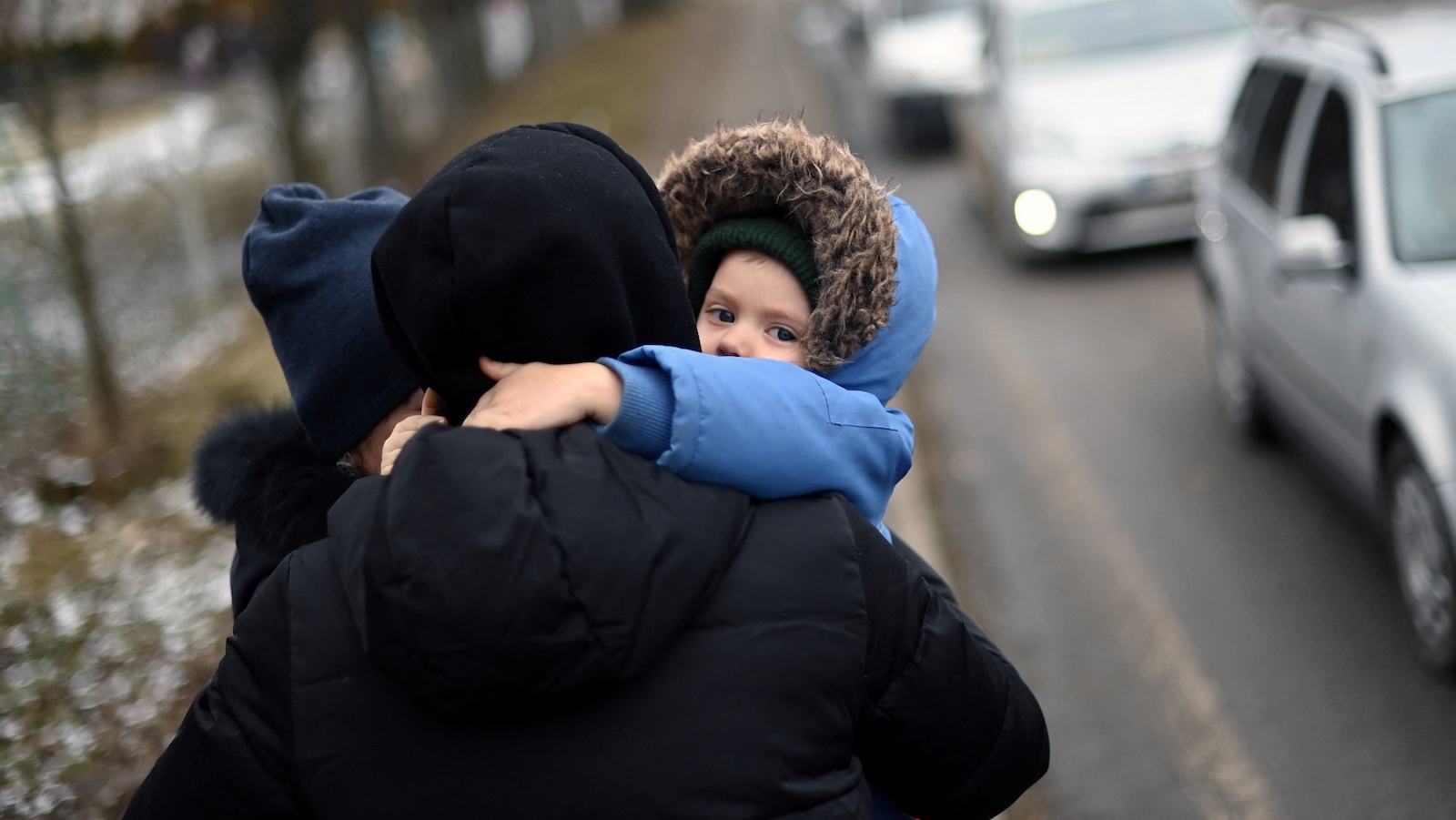How Russia’s invasion is affecting Ukrainian children’s health – Doctor Radio Reports
Pediatric emergency doctor Dr. Ayesha Kadir sheds light on how experiencing violent, traumatic events like the current war in Ukraine puts children’s physical and mental health at risk.

Photo by DANIEL LEAL/AFP via Getty Images
During a special edition of Doctor Radio Reports on Doctor Radio (Ch. 110), Dr. Marc Siegel spoke with pediatric emergency doctor Dr. Ayesha Kadir about the ways that the war in Ukraine is impacting children’s health in Ukraine and around the world. From being victims of wartime acts to loss of home or family — plus the elevated risk of trafficking, abuse, and neglect — conflict impacts children of all ages.
Dr. Kadir, the Senior Humanitarian Health Lead for Save the Children UK, wrote the policy and accompanying technical report for the American Academy of Pediatrics on the effects of armed conflict on children. A global leader in short- and long-term impacts of conflict on the health and well-being of children, she was also a member of Doctors Without Borders and a consultant to the World Health Organization on issues relating to child health and wellbeing in areas of conflict.
Dr. Kadir explained that you can’t differentiate the impact varying types conflict will have on children because it’s not the only factor that’s affecting their health. Most apparent, they are at risk for combat-related physical injuries by living in a warzone, as well as torture, execution, and recruitment. If they flee the warzone, their risk of mortality remains high in low- and middle-income settings.
But “our picture of those children is really limited,” Dr. Kadir said, “Because the health system is broken down, the public health infrastructure is broken down, the reporting systems that would normally capture this aren’t functioning, and they’re not the priority either.” The lack of data results in a limited understanding of long-term impacts on children.
“You can’t make a statement saying, ‘Experiencing it, actually receiving an injury,’ for example, ‘from violence is worse from witnessing it.’ It would be different for every individual child. Resilience is not a trait, it’s not something that any of us are born with,” Dr. Kadir further clarified. “It’s a fluid process, it’s an evolving ability to positively adapt in the face of a harmful or traumatic situation.”
Related: Nancy Pelosi says Ukraine is fighting for same democracy US is undermining
The possibility of separation — children from one or both parents — during mass exodus and chaos in Ukraine, leaves children highly vulnerable to exploitation and trafficking. “Actually being in school is an important protective factor for children who’ve experienced conflict or forced migration,” Dr. Kadir said. Many children who’ve been affected by these kinds of events express a desire to go to school.
Dr. Kadir clarified that “not all children who experience trauma become traumatized.” She discouraged thinking in terms of diagnoses, like Post Traumatic Stress Disorder (PTSD), and more in terms of mitigating symptoms. “It’s very common in refugee children to have a lot of somatic symptoms. Pains — so, headache, stomachaches, changes in their bowel patterns, difficulties in sleeping, nightmares. This is a common reaction to stress in children,” she said.
“Remember, also, that kids — we shouldn’t see them as victims. Actually, they’re participants in their own lives. They have thoughts about what they’ve seen. They also have a way of processing, their understanding of what’s normal and what’s not, and they take these cues from adults around them, and that influences in turn how they react and engage with their experiences, whether it’s a war or being displaced or watching something frightening on television or hearing people talking about things.”
Dr. Kadir pointed out that similarly in the past two years, children picked up cues about the coronavirus pandemic from the adults around them. That’s how kids figured out how to comprehend and respond to the situation, which ultimately formed how it impacted them. However, these sorts of stressors — “toxic stress” like pandemics and armed conflict — are known to be cumulative, “so the more of them you have, the more likely you are to develop illness in childhood and also in adulthood and early death,” Dr. Kadir explained.
She believes that children are extremely adaptable, and when protective factors are put in place, children are able to return to normal physiology. She added, “Equally as important as understanding what’s happening to them, it’s important to understand what it is that protects them. So, when a child has experienced something, what can we do to help them to get through it with the least harm to them?”
Tags:
Doctor Radio
Music, Sports, News and more
All in one place on the SiriusXM app

